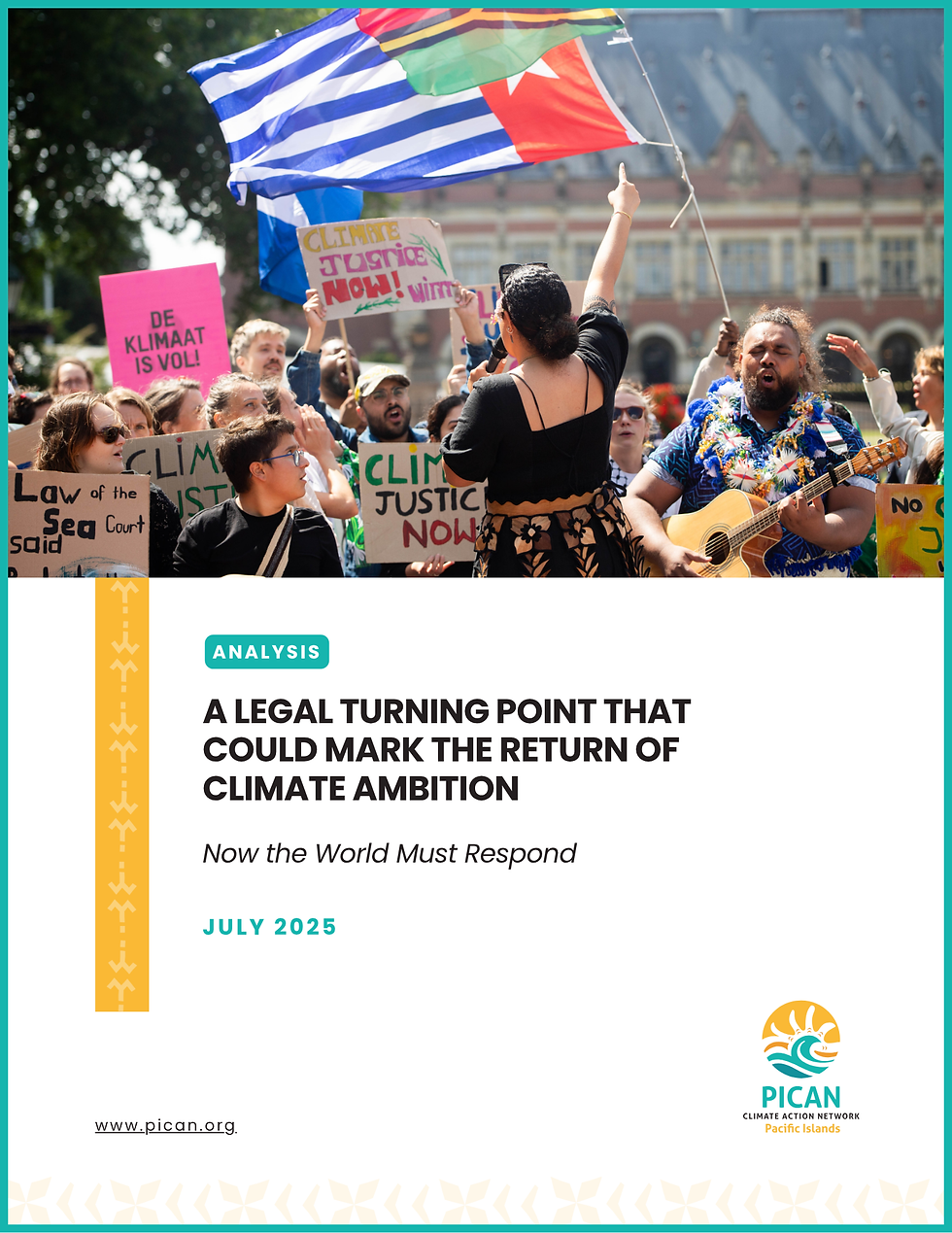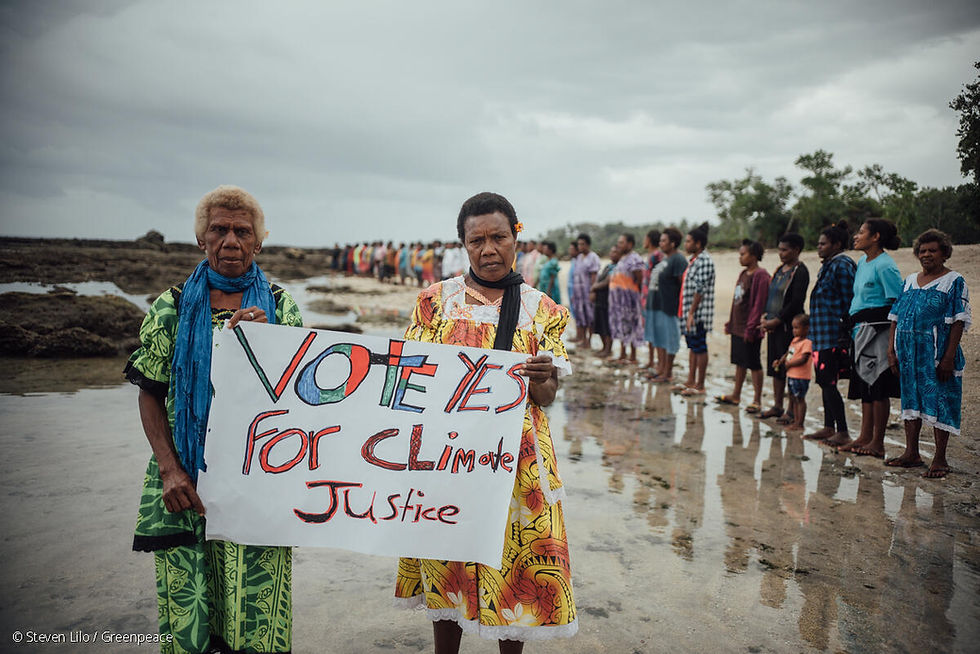A legal turning point that could mark the return of climate ambition - now the world must respond
- Pacific Islands Climate Action Network

- Aug 1, 2025
- 2 min read
On 23 July 2024, the International Court of Justice (ICJ) released a historic Advisory Opinion on climate change. This moment was made possible through the determination of Pacific youth and the leadership of Vanuatu and other frontline states.
This report explains what the ruling means for international law, climate ambition, and the fight for justice.
The ICJ has confirmed that climate change is not just a policy challenge, but a legal one. States have binding obligations to prevent harm, protect human rights, and act in the interests of both present and future generations. The Court made it clear that failure to regulate emissions, fossil fuel subsidies, or destructive industries can result in legal consequences—including reparations.
Why This Matters for the Pacific
For the Pacific, this is a powerful recognition of what our communities have always known, that climate inaction is unlawful and justice demands accountability.
The Advisory Opinion strengthens our hand across all international negotiations beyond the UNFCCC. It supports Pacific demands to phase out fossil fuels, calls for meaningful climate finance, and backs our long-standing efforts to protect our islands, oceans, and ways of life.
What the Report Covers
The report unpacks the ICJ’s findings and provides an accessible summary of its key implications:
Key takeaways from the ICJ Advisory Opinion
Legal obligations under climate treaties, customary law, and human rights
Implications for NDCs, loss and damage, and multilateral negotiations
About PICAN
PICAN is a regional alliance of 190+ non-governmental organisations, civil society organisations, social movements and not-for-profit organisations from the Pacific Islands region working on various aspects of climate change, disaster risk and response and sustainable development.
For enquiries, email scretariat@pican.org




Comments